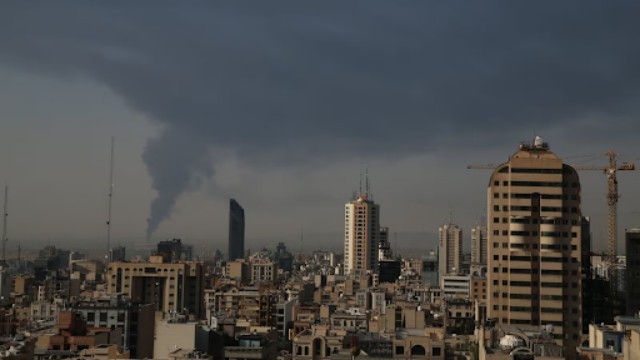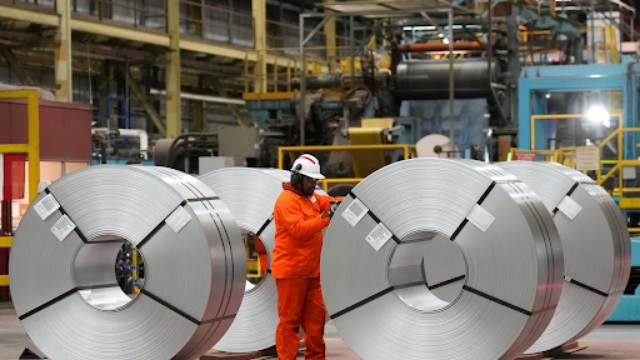
Thick smoke was seen rising from an oil site after what looked like an Israeli airstrike hit the area. (AP Photo)
A sharp increase in oil prices could be on the horizon if the ongoing tensions between Iran and Israel continue to escalate, warns energy expert Andrew Lipow. The conflict, which now includes targeted strikes on energy infrastructure, marks a troubling development with potentially global economic consequences.
On Monday, West Texas Intermediate (WTI) crude oil rose to $71 per barrel, while Brent crude climbed to $72. These gains reflect the growing fear that a direct and prolonged conflict between the two countries could disrupt major oil supplies.
“This is the first time we’re seeing oil and gas production and storage facilities actually being hit,” said Lipow, who heads Lipow Oil Associates. “In previous years, even with rising tensions, energy sites were left untouched. That’s no longer the case.”
One of the most notable recent attacks involved Israeli missile strikes on Iran’s South Pars natural gas field—an act that significantly raised the stakes. According to Lipow, this move signals a turning point. The market now fears Iran may respond by hitting oil production or export sites, or even try to shut down the Strait of Hormuz—a crucial oil shipping route.
“If Iran attempts to block or disrupt tankers passing through the Strait of Hormuz, it could seriously affect global oil supplies,” Lipow explained. “That could push oil prices past $100 per barrel, causing a ripple effect across industries and daily life.”
World Leaders Call for Calm, But Israel Holds Firm
Despite appeals from international leaders to de-escalate, Israeli Prime Minister Benjamin Netanyahu dismissed such concerns over the weekend. Speaking to Fox News, Netanyahu suggested that a regime change in Iran might even be a long-term outcome of the conflict.
Lipow responded to that possibility by pointing out that while Iran’s current leadership faces discontent at home, it’s unclear what might replace it. More worryingly, if Iranian leaders feel cornered, they might lash out even more aggressively.
“If the regime feels it has nothing to lose, it could take extreme steps to inflict economic pain—by targeting oil infrastructure or shutting down shipping lanes,” Lipow warned.
Higher Fuel Costs Could Hit Consumers Worldwide
One direct consequence of the escalating conflict is the potential impact on everyday fuel prices. According to Lipow, gasoline and diesel prices could rise quickly as the situation worsens.
“The longer this goes on, the higher the prices are likely to climb,” he said. “Uncertainty over how Iran might retaliate—whether through more attacks on Israel or even involving U.S. interests—keeps the market on edge.”
He added that the Strait of Hormuz remains especially vulnerable. Roughly one-fifth of the world’s oil supply passes through this narrow waterway. Any disruption there would affect not just fuel costs but also global trade, political tensions, and economic stability.















